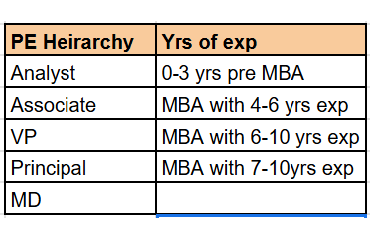
The way Indians work is changing forever.
What started as a pandemic necessity has exploded into a full-scale workplace revolution. By 2025, India will have between 60 to 90 million remote workers—a number that would have seemed impossible just five years ago.
This isn't just a temporary trend. It's the new reality of work in India.
The Numbers Tell the Story
Let's start with some eye-opening facts. As of 2025, 12.7% of full-time employees in India work completely from home. Another 28.2% work in hybrid models. That's nearly 41% of the workforce embracing flexible work arrangements.
But here's the kicker: 98% of Indian workers want to work remotely at least some of the time. And 71% of job seekers now prioritize flexibility when looking for new opportunities.
The message is clear. Remote work isn't going anywhere.
Why Companies Are Jumping on Board
Indian companies aren't just tolerating remote work anymore. They're actively embracing it. Over 70% of Indian companies now offer some form of hybrid or remote work policy. This number continues climbing as businesses discover the real benefits.
The productivity surprise caught many executives off guard. Studies show that 98% of remote workers in India feel more productive working from home. Another survey found that 50% of hybrid workers consider themselves notably more productive than their office-bound colleagues.
Cost savings provide another compelling reason. Companies save up to 70% on real estate costs when employees work remotely. That's money that can go toward better salaries, technology, or business growth.
Talent attraction has become easier too. Companies can now hire the best talent regardless of location. A software developer in Coimbatore can work for a startup in Bangalore. A digital marketer in Jaipur can serve clients in Mumbai.
The Tech Giants Lead the Way
Major Indian IT companies pioneered this shift. TCS introduced a "30-40-30" model where 30% of employees work remotely, 40% work from offices, and 30% have flexible options. Infosys reports that 95% of their workforce still works from home, with plans for a long-term hybrid model.
Wipro sees seven out of ten employees coming to office just three times a week. HCL Technologies promotes flexible working environments with full-time remote options for eligible roles.
These aren't small experiments. These companies employ millions of people and set trends for the entire industry.
Regional Cities Are Winning Big
Here's where things get really interesting. Tier-II and tier-III cities are experiencing unprecedented growth. Cities like Coimbatore, Nagpur, and Jaipur saw a 50% surge in IT hiring.
Why? Remote work eliminates geography as a barrier.
Companies can tap into talent pools they never accessed before. Employees can enjoy lower living costs while earning competitive salaries. A software engineer in Indore can earn Mumbai wages while paying Indore rent.
This shift is creating new economic hubs across India. Cities that never had major tech presence are now attracting top talent and investment.
The Money Side of Remote Work
Let's talk about compensation. Remote workers often earn as much as—or more than—their office counterparts. Data engineers working remotely average ₹19.84 lakhs annually. Business development specialists earn around ₹8.87 lakhs.
Home office stipends have become standard. Companies typically provide ₹21,095 to ₹2.1 lakhs for home office setup. Tech companies often offer higher amounts, around ₹84,380 annually.
The breakdown usually covers:
-
Ergonomic furniture and desk setup
-
High-speed internet connections
-
Laptops and monitors
-
Software subscriptions
-
Electricity and utility costs
Some companies provide one-time payments ranging from ₹8,438 to ₹84,380. Others offer monthly or annual stipends for ongoing expenses.
What Remote Work Really Looks Like in India
Remote work in India isn't just "working from home." It's evolved into sophisticated hybrid models that blend the best of both worlds.
Meeting preferences vary by purpose. Indian employees prefer virtual meetings for project updates and brainstorming sessions. But they want in-person meetings for team bonding (61%) and one-on-one manager discussions (62%).
Collaboration tools have become essential. Email remains the top choice for 68% of remote workers. Google Docs and Microsoft 365 follow at 51%. Video calls and phone conversations round out the communication mix.
Work hours have become more flexible. The rigid 9-to-5 schedule is disappearing. Employees work when they're most productive, leading to better outputs and happier workers.
The Challenges Are Real
Remote work isn't perfect. Companies face legitimate challenges that require smart solutions.
Communication gaps top the list. Without face-to-face interactions, misunderstandings happen more frequently. Teams need to work harder to stay connected and aligned.
Monitoring productivity concerns many managers. How do you know employees are actually working? The answer lies in outcome-based performance metrics rather than hours logged.
Equipment and setup create logistical headaches. Getting laptops configured and delivered across India requires robust IT partnerships and processes.
Employee isolation affects some workers. Not everyone thrives in solitary work environments. Companies need to create virtual social connections and support systems.
Security risks multiply with distributed teams. Companies must invest in VPNs, encryption, and cybersecurity training to protect sensitive data.
Success Stories Across Industries
Remote work success extends far beyond IT companies.
Zoho set up rural offices allowing employees to work remotely in small towns. This approach reduces costs while improving work-life balance for employees.
OYO gives employees three options: work from home, work from anywhere, or work from OYO workspaces. This flexibility has increased productivity and employee satisfaction.
Infosys opened new centers in Indore, Nagpur, Hubballi, Vizag, Coimbatore, Mumbai, and Noida. These locations allow employees to work closer to home while maintaining office collaboration when needed.
Industries Embracing the Change
Remote work has spread beyond traditional tech roles.
Financial services companies now offer remote positions in analysis, consulting, and client management. The sector discovered that many functions don't require physical presence.
Healthcare organizations provide telemedicine support, medical writing, and research roles remotely. The pandemic accelerated digital health adoption, creating new remote opportunities.
Education companies offer online tutoring, curriculum development, and educational technology roles. The EdTech boom created thousands of remote positions.
E-commerce businesses hire remote workers for digital marketing, customer service, and vendor management. The online shopping surge requires distributed support teams.
Employee Benefits Beyond Salary
Remote work provides benefits that go far beyond paychecks.
Work-life balance improves dramatically. No daily commute means more time with family. Flexible schedules accommodate personal commitments. Parents can attend school events without taking leave.
Health improvements surprise many workers. Less stress from commuting reduces anxiety. Home-cooked meals replace expensive office food. Better sleep schedules boost energy levels.
Cost savings add up quickly. No transportation expenses. Reduced spending on work clothes. Lower food costs. These savings can equal thousands of rupees monthly.
Career opportunities expand geographically. Workers can apply for jobs anywhere in India—or globally. Skills matter more than location.
The Skills That Matter Most
Remote work success requires specific abilities beyond technical expertise.
Communication skills become critical. Written communication must be clear and concise. Video presence needs to be professional. Active listening prevents misunderstandings.
Self-discipline separates successful remote workers from strugglers. Without direct supervision, productivity depends on personal motivation and time management.
Technology proficiency is non-negotiable. Workers must be comfortable with collaboration tools, video conferencing, and cloud-based applications.
Problem-solving abilities matter more in isolated environments. Remote workers need to troubleshoot issues independently before asking for help.
What 2025 and Beyond Holds
The remote work revolution in India is just getting started.
AI integration will streamline remote work processes. Automated scheduling, smart meeting summaries, and AI-powered project management will boost productivity.
Virtual reality meetings will create more immersive collaboration experiences. Teams will feel more connected despite physical distance.
Global hiring will accelerate. Indian professionals will increasingly work for international companies, bringing global salaries to local markets.
Four-day work weeks may become standard. Companies experimenting with shortened schedules report higher productivity and employee satisfaction.
Outcome-based evaluation will replace time-based metrics. Performance will be measured by results achieved rather than hours worked.
The Bottom Line
India's remote work revolution represents more than a workplace trend. It's a fundamental shift in how we think about work, productivity, and life balance.
With 60-90 million Indians working remotely by 2025, this transformation affects millions of families, thousands of companies, and hundreds of cities. The economic impact extends beyond individual paychecks to regional development and national competitiveness.
Companies that embrace this change will attract top talent, reduce costs, and increase productivity. Those that resist risk losing their best employees to more flexible competitors.
For workers, remote work offers unprecedented opportunities to design careers around life priorities rather than geographical constraints. The future belongs to those who can deliver results regardless of location.
Ready to join India's remote work revolution? Start developing the skills, tools, and mindset needed for distributed work success. The opportunities are endless for those prepared to seize them.
Whether you're an employer looking to tap into India's vast talent pool or a professional seeking better work-life balance, remote work offers a path to achieve your goals. The revolution is here. The only question is: will you be part of it?
Don’t stress about searching every career page or job site. Stay ahead with the latest opportunities from different sources right here!
Related Articles
You've gone through an education system that probably never taught you anything about professionalism, logical deconstruction, and comfort with ambiguity. You may have tremendous bookish knowledge, but lacking these three attributes is an immediate invisible red flag that will stop you from getting the job or the promotion you always wanted.
Let's throw some light on the top-5 common mistakes that highlight your lack of these attributes, and what you should be doing instead
- Showing up late without informing your interviewer/coordinator - there are genuine reasons one could be running late, but that needs to be duly communicated ahead of the planned interaction. Inform every marked on an invite, drop a text or give a call, but keep your stakeholders informed. Their time is as much valuable as yours.
- Turning up unprepared for the interview - if you are turning up unprepared, why is it that you are turning up at all? why waste your and interviewer's time? You are better off declining the opportunity, instead of ruining your reputation unnecessarily. You must invest 1 hour to read about the company, the opportunity, some information in the public domain and so on, if you have chosen to show up for an interview.
- Going silent instead of communicating effectively with your stakeholders - it might come as an insight but everyone knows you would evaluate multiple opportunities before chosing one, everyone knows that your decision might be influenced by your loved ones, and everyone is okay with your being unsure, but nobody likes to be left wondering about what might be happening. So, good, bad or ugly, communicate, communicate and communicate! You'll build more relationships that you ever thought, and you never know, one or more of these relationships may turn gold in the times to come.
- Rambling stuff that does not make sense - let us fill you in on another secret, nobody - not even the most successful individuals can know everything about everything in the world. So, when presented with topics/questions you have no clue about, you got to either draw parallels from what you have expertise on, rationally break down the information you are presented with to come up with simple yet logical answers, or admit you do not know anything about this but can talk about something relevant to the opportunity being discussed in detail.
- Demanding a bomb without a concrete rationale - the whole world is underpaid, friends! who doesn't want more, but that's not how it works. Your next compensation cannot ignore your current and/or previous compensations. If you chose to take a sabbatical, took an opportunity by taking a haircut, or become an entrepreneur that eventually did not work out, you have to make peace with your decision. Nobody else had a say in that! You can definitely demonstrate additional skills/knowledge that you acquired during this period (that surely has a value), but that value isn't the only figure on which your next compensation will be decided on. So, learn about the market standards and try to limit your ask within the broadly acceptable range.
Let’s be honest — job hunting today feels like swiping right on a dating app where no one ever replies. Employers can’t find the right talent, job seekers chase ghost listings, and somewhere between “We’ll get back to you” and “Position closed,” everyone loses their sanity.
Enter Aplushub — the career saver we didn’t know we needed.
Why Aplushub Exists
Born from the chaos of the modern job market, Aplushub was built on one bold idea — quality over quantity. It’s not just another job portal flooding you with random roles. It’s a curated ecosystem that blends AI precision with human insight to filter out the clutter and keep only what truly matters: authentic, relevant, and verified opportunities.
What It’s Solving
Aplushub is tackling the biggest pain in job search — noise. Fake jobs, expired links, spam recruiters, and endless scrolling are replaced by clean, credible listings. The platform categorizes openings into Free Jobs (posted directly by employers) and Premium Jobs (handpicked by Aplushub’s research team from trusted sources and networks). So, no more digital wild goose chases — only jobs worth your time.
Remote Jobs? Absolutely.
Whether you’re working from your couch in Chennai or a café in Manali, Aplushub’s got you covered. The platform features a dedicated Remote Jobs section — tailored for professionals who value flexibility. It connects you with employers who believe talent shouldn’t be tied to geography.
Why It’s a Win-Win
For job seekers, Aplushub is your career compass — one dashboard, hundreds of genuine opportunities, and no shady “DM for job” drama.
For employers, it’s a hidden gem. Posting is free, candidate access is simple, and you get applicants who are genuinely interested — not bots in disguise.
Bonus Perk: The *OpenBook* Advantage
Here’s where Aplushub really flips the script — OpenBook, its transparency-first feature. It gives job seekers a peek into real hiring insights, company trends, and recruiter updates, turning job search into a smarter, more informed experience. No more guessing what employers want; OpenBook hands you the inside scoop to make data-backed career moves.
The Price Tag (Spoiler: It’s Almost Free)
Aplushub keeps things real and affordable. You can explore its free tier, test-drive premium access with ₹50/Month, or go all in with ₹499 for a full year— basically less than your monthly coffee budget to land your next big opportunity.
So whether you’re hiring, hunting, or just tired of the chaos — Aplushub is here to bring sanity (and a smile) back to your career journey.
👉 Visit AplusHub.com — where jobs finally make sense.
Private Equity (PE) is one of the most coveted industries in finance. One of the highest paying industries, Private Equity (PE) attracts absolute creme-de-la-creme of MBA graduates, management consultants, and investment bankers. Also highly competitive, PE funds hire only a handful of investment professionals across levels in a year.
A+ research team has spoken to multiple PE professionals across domestic and global PE funds in India. In the table below, we have compiled average base compensation, variable (bonus) and carry components at blue chip global PE funds in India.
| Role | Yrs of exp | Large Global PE Funds (base salary) | Bonus (as a % of base) | Carry | |
| Analyst | 0-3 yrs pre MBA | $60K-$80K | 60-100% |
Notional Carry or LTI or Certain bonus is paid in the form of carry distribution in case of multi-billion dollar funds*
|
|
| Associate | MBA with 4-6 yrs exp | $100K-$150K | 80-100% | ||
| VP | MBA with 6-10 yrs exp | $200K- $250K | 90-120% |
Estimated 0.5%-2% of the carry pool for a multi billion dollar fund*
|
|
| Principal | MBA with 7-10yrs exp | $300K-$400K | 90-120% | ||
| MD | $500K+ | 100-150% | |||
| Notes: |
These figures are estimates of salaries at top global PE funds like Bain, Carlyle, TPG, Warburg Pincus, General Atlantic and the likes
|
||||
|
Buyout focused funds have 30-50% higher base salaires and respective bonuses
|
|||||
|
*These are estimates from the information gathered through our network; might change/vary with more data
|
|||||




